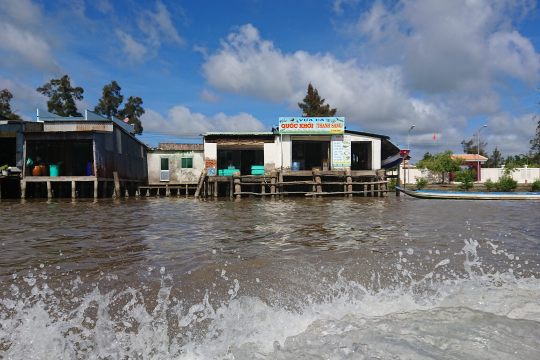Vietnam's seafood industry, a cornerstone of the nation's economy, grapples with challenges like water pollution, low productivity, and inefficiency. A groundbreaking study by EfD Vietnam researchers unveils valuable insights into addressing these pressing issues.
The study published in the Journal of Cleaner Production focuses on the Mekong River Delta, Vietnam's primary seafood production hub. It delves into the costs of reducing water pollution from seafood processing plants, specifically targeting biochemical oxygen demand (BOD), chemical oxygen demand (COD), and total suspended solids (TSS). These pollutants a the organic and inorganic substances impacting water quality and aquatic life.
Costs differ between companies
Using data from 116 seafood processing plants over three years, the study employs a directional distance function approach to calculate Marginal Abatement Costs (MACs). MACs indicate the costs of reducing an additional unit of emissions. Strikingly, the study unveils significant MAC variations among firms, depending on their characteristics, technology, and market conditions. Noteworthy trends include lower MACs for firms that are more capital-intensive, less labor-intensive, have complex ownership structures, are not seaside or riverside, export products, and exhibit higher environmental regulation compliance.
Authors recommend tradable permit system
The current uniform standard and environmental tax are, according to the authors, inefficient. They advocate instead for a tradable permit system. This approach offers cost-effectiveness and flexibility, enabling firms with higher MACs to purchase permits from those with lower MACs. The outcome is a collective reduction in the cost and level of pollution abatement, fostering a more sustainable seafood industry.
Certifications are a dual-edged sword
The study uncovers the influence of certifications on MACs. Possessing certifications such as ISO and BRC are advantageous in reducing MACs, indicating these firms are more adept at abating water pollution. However, a raw materials certificate increases MACs, suggesting higher opportunity costs for pollution reduction. The study suggests governmental incentives for certifications enhancing environmental performance while reducing barriers and costs tied to raw materials certification.
A comprehensive strategy is needed
The study offers crucial insights for policymakers, managers, and environmentally conscious consumers. It emphasizes the necessity for a comprehensive strategy considering MAC heterogeneity and determinants. The call is for adopting more efficient and equitable market-based instruments for water pollution control. This study not only addresses the challenges in Vietnam's seafood industry but also contributes to the global literature on shadow price measurement and environmental policy in developing countries. Explore the complete study for a deeper understanding of the path to a sustainable seafood industry.
